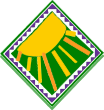Relationships, Social, Health and Citizenship Education
Intent
As you may be aware from September 2020 Relationships and Health Education (RSHE) became compulsory in all primary schools in England.
Following a thorough process of review and evaluation, we have chosen to deliver this curriculum using the Kapow RSE & PSHCE scheme of work. It includes all aspects of the compulsory relationships and health education and is designed in an age appropriate, engaging and sensitive way. The programme respects the diversity of families in our community.
The DfE recommends, ‘that all primary schools should have a Sex Education programme tailored to the age and the physical and emotional maturity of the pupils.’
Kapow aligns with our vision and ethos because it aims to give children the knowledge, skills, and attitudes that they need to effectively navigate the complexities of life in the 21st Century. The curriculum covers key areas which will support children to make informed choices now and in the future around their health, safety, wellbeing, relationships, and financial matters and will support them in becoming confident individuals and active, responsible members of society.
Implementation
The Kapow Primary scheme is a whole school approach that consists of three areas of learning in EYFS: Reception (to match the EYFS Personal, social and emotional development prime area) and five areas of learning across Key stages 1 and 2.
EYFS:
● Self-regulation
● Building relationships
● Managing self
Key stage 1 and 2:
● Families and relationships
● Health and wellbeing
● Safety and the changing body
● Citizenship
● Economic wellbeing
Each area is revisited to allow children to build on prior learning. The lessons also provide a progressive programme. The lessons are based upon the statutory requirements for Relationships and Health education, but where our lessons go beyond these requirements (primarily in the Citizenship and Economic wellbeing areas) they refer to the PSHE Association Programme of Study which is recommended by the DfE. Sex education has been included in line with the DfE
recommendations and is covered in Year 6 of our scheme. The scheme supports the requirements of the Equality Act through direct teaching, for example learning about different families, the negative effect of stereotypes and celebrating differences, in addition to the inclusion of diverse teaching resources throughout the lessons.
A range of teaching and learning activities are used and are based on good practice in teaching RSE/PSHE education to ensure that all children can access learning and make progress. In key stage 1 and 2, there is an introductory lesson at the start of each year group which provides the opportunity for children and teachers to negotiate ground rules for the lessons. These introductory lessons can then be referred to throughout the year to help create a safe environment.
All lessons include adaptations to stretch the most able learners and give additional support to those who need it. Many lessons, stories, scenarios, and video clips provide the opportunity for children to engage in real life and current topics in a safe and structured way. Role-play activities are also included to help children play out scenarios that they may find themselves in. There are meaningful opportunities for cross-curricular learning, in particular with computing for online safety and Science for growing, nutrition, teeth, diet and lifestyle. The scheme provides consistent messages throughout the age ranges including how and where to access help.
Impact
Each lesson within Kapow Primary’s scheme features assessment guidance, helping teachers to identify whether pupils have met, exceeded, or failed to meet the desired learning intentions for that lesson.
Teachers may also use the assessment quiz and Knowledge catcher. The teachers can capture children’s initial knowledge through a ‘Starter Question’ and complete each unit with a knowledge catcher. This form of assessment can highlight what awareness the children a Summerlea have around aspects covered within RSHCE, but also how the RSHCE curriculum broadens their understanding too.
Staff capture children’s evidence, understanding and contributions using a ‘floor book’. This enables the children to direct the learning and ask questions that they’re unsure of. The floor books enable teaching staff and subject leaders to have a clearer insight and a bigger picture into a child’s and class’s understanding around a concept. Progression of the floor books is evident as children move from EYFS and KS1 into KS2.
Once taught the full scheme, children will have met the objectives set out within the Relationships and Health Education statutory guidance and can utilise their learning within their daily lives, from dealing with friendship issues to resilience to making healthy choices and knowing where and how to get help when needed. From their RSHCE lessons, the children will have more taught opportunities to be taught about positive emotional and mental wellbeing, including how friendships can support mental wellbeing.
To view our RSHCE curriculum, click here.

